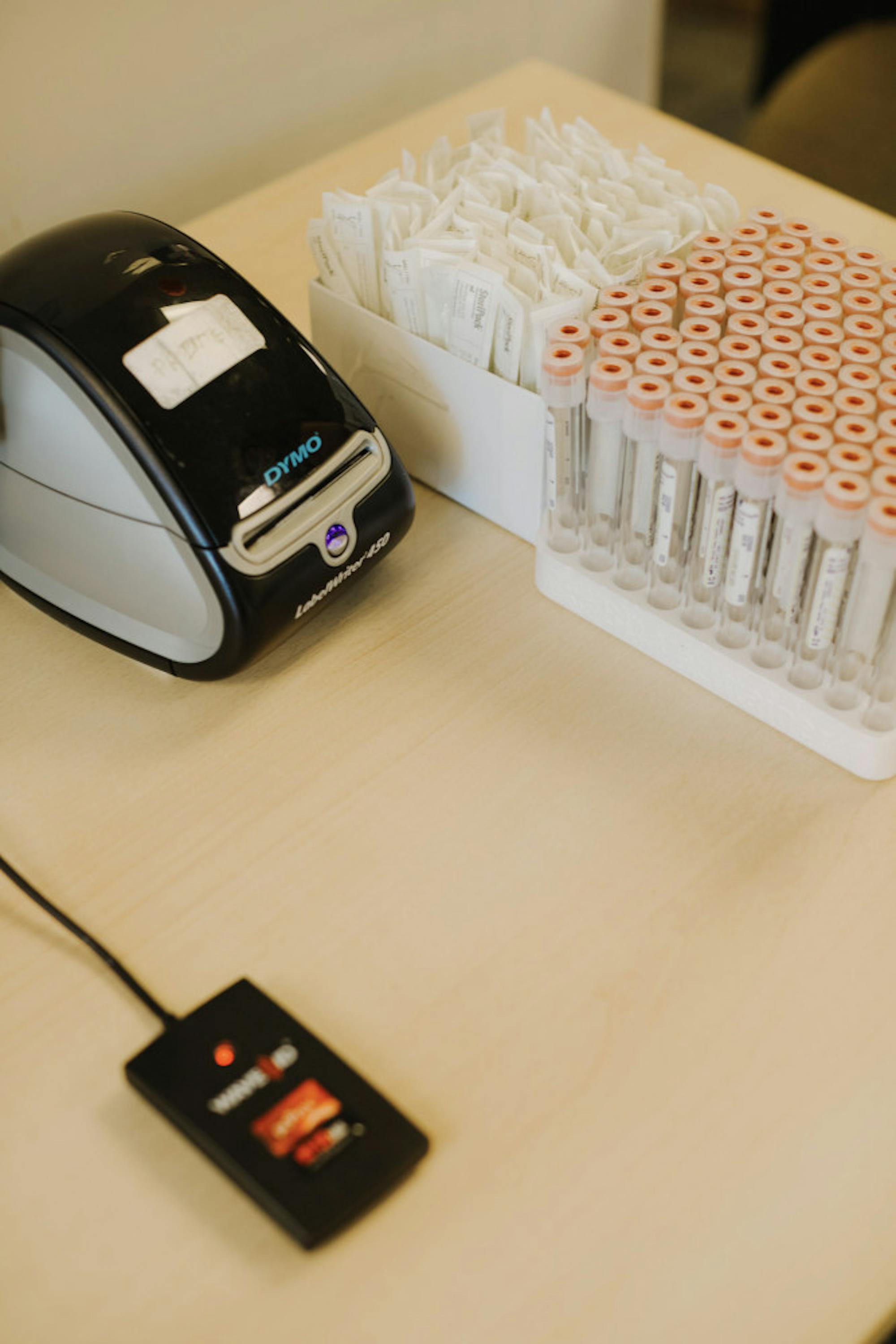Tufts updated its masking and testing guidelines for the spring semester in an email sent to the Tufts community on Jan. 2. The update follows the recent announcement of an updated vaccination policy, requiring all eligible students, faculty and staff to receive a COVID-19 booster vaccination by Feb. 15.
The email announced that, based on the new masking guidelines, cloth masks are no longer permitted on Tufts’ campuses given their lower effectiveness relative to disposable three-ply or KN95 masks.
“Data show that cloth masks are not as effective as surgical-grade 3-ply or KN95 masks in preventing transmission of the virus," the email said. "You must wear disposable 3-ply or high quality KN95 masks and replace them daily or sooner if they get wet or dirty.”
To facilitate this transition, Tufts will ensure that students have access to disposable surgical masks in various locations throughout campus.
“The university is providing disposable 3-ply masks in many locations on all campuses, including at main building entrances and residence halls,” the email said.
According to Dr. Marie Caggiano, medical director of Health Service, the three-ply masks provided by the university are effective at preventing the spread of COVID-19, but students are welcome to acquire their own KN95 masks if they prefer.
“Tufts has procured a large supply of quality 3-ply masks and these masks are effective in preventing the spread of COVID-19 when used consistently and worn correctly," Caggiano wrote in an email to the Daily. "Students may choose to purchase their own KN95 masks from reputable suppliers and wear them if they choose."
Regardless of whether students choose to wear a three-ply or KN95 mask, University Infection Control Health Director Michael Jordan stressed that wearing a mask is the most critical action to take after being vaccinated and boosted.
“In addition to being fully vaccinated and boosted, wearing a mask is the single most important measure we can take to prevent the transmission and acquisition of the COVID-19 virus,” Jordan wrote in an email to the Daily.
Jordan explained that students identified for wearing cloth masks on campus will be told to switch to surgical masks.
“Students who are seen wearing cloth masks will be asked to replace them with the required 3-ply disposable masks," Jordan wrote. "We are making it easier for students to wear the 3-ply disposable masks by distributing them for free in many of the main buildings on our campuses, including at the testing centers.”
Tufts is also increasing the frequency of routine COVID-19 surveillance testing to three times per week for students, faculty, staff and affiliates until the end of the current surge.
Caggiano explained that the purpose of increased testing is to maximize the rate of detection for positive cases and begin the isolation and contact tracing process in a timely manner.
“Both steps help to mitigate the spread of the virus within our community," Caggiano wrote.
Students are also required to test immediately upon arriving on campus and limit close contacts until they receive a negative test, according to the email sent to the Tufts community on Jan. 2. All testing will be conducted as individual PCR tests rather than pooled testing, which will resume once cases drop.
Jordan discussed the differences between pooled testing and individual PCR tests.
“The difference between individual and pooled PCR testing is that pooled testing combines samples from up to ten (10) individuals and performs a COVID-19 PCR test on that group," Jordan wrote. "If the results of the pooled test indicate that any of the samples are positive, follow-up individual PCR retests are given to each individual in the pool."
Jordan explained that although pooled testing offers several benefits, individual PCR tests enable a more time-efficient isolation and contact tracing process. He added that Tufts will return to pooled testing once positive cases drop and stabilize.
“The benefits of the pooled testing methodology are that it reduces costs and environmental impact by requiring less equipment and fewer supplies and personnel," Jordan wrote. "We are moving to individual testing for the start of the spring semester because we anticipate a high incidence of positive results as students return from break."
The Jan. 2 email to the Tufts community acknowledged the significance of these changes.
“We recognize that these guidelines are stricter than they have been," the email said. "However, they are necessary during this current surge to mitigate infections as we start the spring semester. ... We will continue to monitor the situation as it evolves and update the university’s guidance when necessary.”






